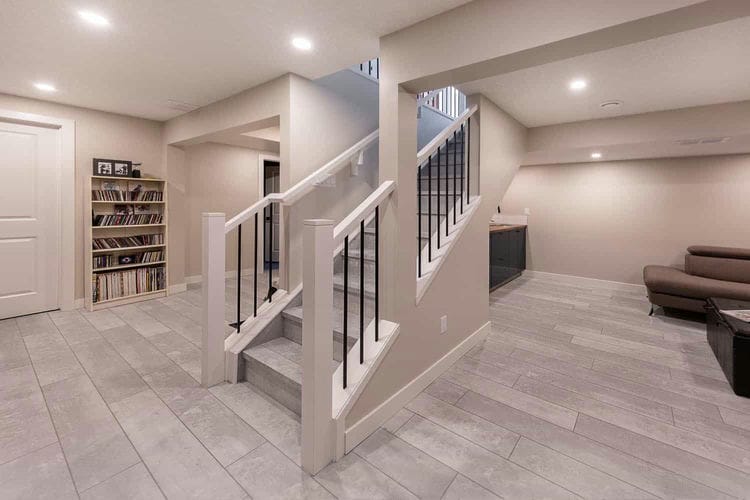Converting a dark, unfinished basement or unused space is one of the most rewarding and challenging projects. A properly finished basement adds value to almost every home, making it one of the best remodeling investments a homeowner can make. “Well, but the thing is that it’s all going to come down to one decision: picking the right basement developer. Here are the variables that will affect the quality, safety, and lifespan of your new space. While it sounds intimidating, if you follow a process, then you can find the professional that will make your vision real with skill and integrity.

Define Your Vision and Budget
Before you even start the search, let yourself dream ahead. Do you plan on a home theater, guest suite with bath, children’s playroom or just an open, spacious living area that is easy to live in? With a clear mind you will be able to present your ideas to the contractors in a way that makes sense to them. Keep it realistic. Remember, having a 10%-20% contingency fund is not uncommon in any below-grade renovation project. That’s because there are always some pretty minor water seepages and structural updates that need to be done, and also there are always some minor water problems that can’t be fixed during the project, such as small water seepages.
Seek Recommendations and Conduct Thorough Research
They may be able to give you some firsthand accounts of the process. You should also look online. Check reputable directories like Yelp and review sites like Google My Business and Trustpilot. Also, check the company websites for their portfolios. Look for reviews mentioning communication skills, problem-solving ability and adherence to deadlines and budgets. A good basement developer should have a strong social media presence. These should include pictures of finished projects and satisfied customers. Make a list of at least 3 to 5 companies that specialize in basement conversions that have had some fairly good reviews.
Verify Credentials and Insurance
This is perhaps the most important part of vetting a potential contractor. Any legitimate basement developer must have all the appropriate licenses required by your local or state authorities. Licensure means they’ve successfully met a basic level of competency requirements. And what’s more, request proof of insurance, mainly liability and workers compensation. Liability insurance covers any damages to your property caused by the project. Workers compensation covers you from liability should a worker be injured on your property. Never hire an uninsured contractor; you’re more financially vulnerable than anyone else.
Review Portfolios and Conduct In-Person Interviews
A picture is worth a thousand words, and a portfolio is a representation of the developer’s style and skills. Look at their portfolios closely. Do they have experience with the design and finish you want? They seem professional and high-quality? Then, after you look at their portfolio, set up a meeting in person with your top choices. It’s your opportunity to share your vision and gauge their expertise, energy, and overall communication skills. A good basement developer will ask interesting questions, share actionable solutions, and make you feel confident in your abilities.
Obtain Detailed Written Quotes
Once you have gotten a few quotes from a couple different contractors, ask them for detailed quotes written down from each. If at all possible don’t settle for any estimate that is substantially lower than the others; this can be a warning sign of some kind of sub-par materials, hidden costs, or any other sort of corner cutting. A complete quote should specify for what: Materials, labor permits timeline, Types of materials, brands, models, and grades of materials to be used (i. e. type of insulation, flooring, and drywall) This document will give you an apples to apples comparison so that you don’t get misunderstood by anyone in the future. The right basement developer will be very transparent and thorough with their pricing.
Understand the Contract and Payment Schedule
Before work begins, make sure that you have a good contract in place. The contract will need to include detailed information about the scope of work, breakdowns of the project’s costs, start and end dates, warranties, and the payment schedule. Don’t trust contractors who ask for a huge down front payment. A common payment schedule is that of an initial deposit, followed by a series of payments based on completion of certain milestones (e. g., framing, plumbing, electrical). You should leave a final payment for the job until you’ve completed a full walk-through and are confident that the work was done correctly.
Communication and Gut Feeling
Finally, have faith in your gut. During the consultation process, take note of how the contractor interacts with you as well. Are they open and professional? Do they address and address any questions or concerns?You will need to work with this person or team, usually over a period of at least several weeks, so you want someone whom you feel comfortable working with and trust. A reliable basement developer will be your partner through the process and can deliver their fair share of constructive communication not to mention doing what they can to resolve any problems or concerns you might have in a timely and professional manner. Choosing the right professional takes some work, but it’s well worth it. You will be able to select a trusted and skilled partner to make your basement a beloved member of your home and so you will be able to achieve a smooth process and result you can treasure for many years.
